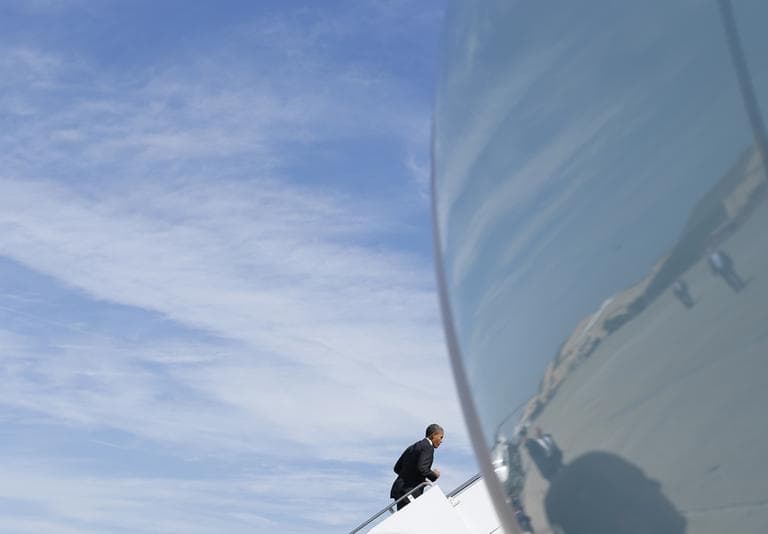Advertisement
Week In The News: 47 Percent, Chicago Strike, Fast And Furious
ResumeMitt Romney and the 47 percent. The strike ends in Chicago. A tough judgment on “fast and furious.” Our weekly news roundtable goes behind the headlines.

Restart week for Mitt Romney’s presidential campaign. But not in a direction, it turned out, he might have hoped. A bootleg tape of Romney seeming to call half of America freeloaders was a rough way to start.
Some uncomfortable days for President Obama, too. Soft economic numbers. A turnabout on whether the Libya/Benghazi attack was terrorism.
High-profile grillings for Obama and Romney by top Latino journalists. Strike’s over in Chicago. China’s yelling at Japan. Mrs. Jesus gets a moment.
This hour, On Point: our weekly news roundtable goes behind the headlines.
-Tom Ashbrook
Guests
Ginger Gibson, reporter at Politico.
Trudy Rubin, columnist with the Philadelphia Inquirer.
Jack Beatty, On Point news analyst.
From Tom's Reading List
National Review "How did Fast and Furious happen? The report places most of the blame on the Phoenix Field Division of the ATF and the Arizona U.S. Attorney’s Office — both of which wanted to avoid tipping off the cartels that law enforcement was watching while they assembled a big case, and neither of which seems to have given any thought to the threat to public safety that would stem from placing 2,000 guns directly into the hands of criminals."
New York Times "Every Tuesday and Friday morning in a dining area tucked behind Dunkin’ Donuts in the Pentagon’s main food court, a gay coffee group meets to talk, do a little business and tell a few jokes."
Foreign Policy "The situation in East Asia is tense. Japan and China, two of the most powerful countries in the world, are locked in a bitter dispute over eight tiny, uninhabited islands in the East China Sea. The volatility of the issue — compounded by the fact that the waters around the islands are rich in natural resources -- is such that it’s hard to know what will happen next. But there’s one prediction that I would already dare to make. I don’t think that this lingering feud bodes well for the fate of liberal democracy in the region."
This program aired on September 21, 2012.